Kenya Wildlife – Animals, National Parks & Where to See Them
Kenya is one of the world’s greatest wildlife destinations — home to iconic species like lions, elephants, rhinos, giraffes, cheetahs, and over 1,000 species of birds. From the Big Five to rare northern species and vibrant ecosystems, Kenya wildlife draws photographers, naturalists, and safari-goers from every corner of the globe.
What Wildlife Can You See in Kenya?
The Big Five Kenya is Known For
Kenya is one of the few countries where you can see all members of the Big Five:
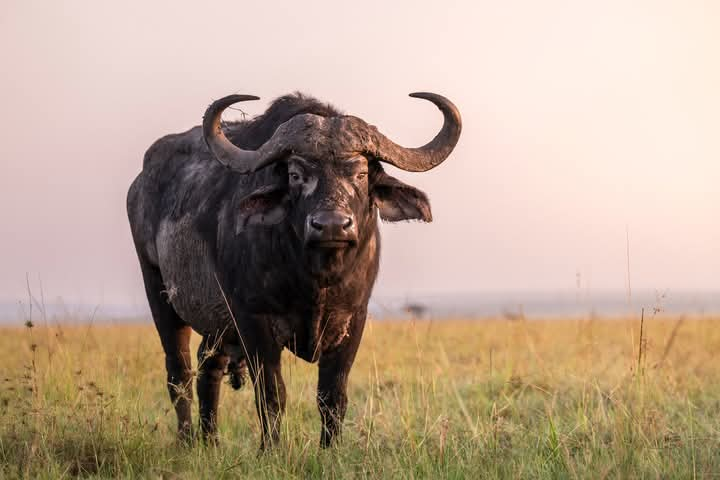
What Wildlife Can You See in Kenya?
The Big Five Kenya is Known For
Kenya is one of the few countries where you can see all members of the Big Five:
| Animal | Where to See It |
|---|---|
| Lion | Masai Mara, Tsavo, Samburu |
| Elephant | Amboseli, Tsavo, Samburu, Laikipia |
| Buffalo | Found in almost every national park |
| Leopard | Samburu, Masai Mara, Lake Nakuru |
| Rhino | Ol Pejeta Conservancy, Lake Nakuru |
Unique and Iconic Kenya Wildlife
Kenya’s biodiversity goes far beyond the Big Five. Some of the most unique animals in Kenya include:
Cheetahs – Best seen in Masai Mara
Grevy’s Zebra – Rare and found in Samburu
Reticulated Giraffe – Northern Kenya (Samburu, Buffalo Springs)
Gerenuk – Long-necked antelope, northern regions
Hippos & Crocodiles – Mara River, Lake Naivasha
Flamingos – Lake Nakuru, Lake Bogoria, Lake Elmenteita
Ostriches – Masai Mara, Tsavo, Amboseli
Over 1,100 bird species – Fish eagles, hornbills, kingfishers, secretary birds
Best National Parks to See Kenya Wildlife
Masai Mara National Reserve
Kenya’s most famous park, known for its dense predator population and the Great Migration safari from July to October. Excellent for lions, cheetahs, leopards, and all Big Five.
Amboseli National Park
Famous for large elephant herds and unbeatable views of Mount Kilimanjaro. Great for birdlife, buffalo, giraffes, and classic photography.
Samburu National Reserve
Home to the Samburu Special Five: Grevy’s zebra, reticulated giraffe, Somali ostrich, gerenuk, and Beisa oryx. Culturally rich and less crowded.
Lake Nakuru National Park
An important bird sanctuary, known for flamingos and both black and white rhinos. Leopards often seen in the acacia forests.
Ol Pejeta Conservancy
A conservation success story and home to the last two northern white rhinos. Also offers chimpanzee sanctuary access and night drives.
Tsavo East & West National Parks
Kenya’s largest protected area. Wilder, more remote, excellent for elephants, lions, giraffes, and birding.
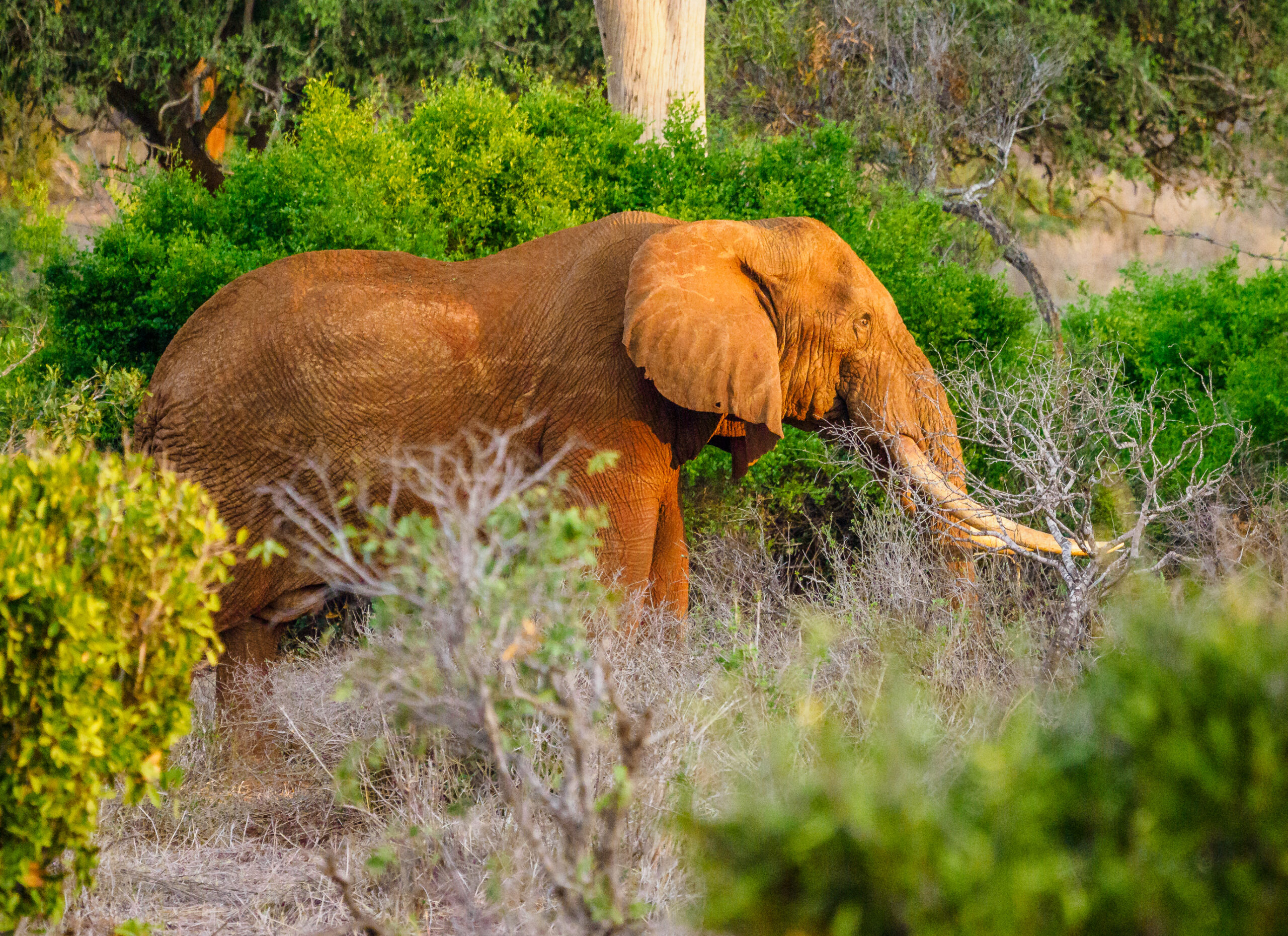
Best Time to See Wildlife in Kenya
| Season | Highlights |
|---|---|
| July–October | Dry season + Great Migration in Masai Mara |
| December–March | Calving season + clear skies + great predator viewing |
| April–June | Green season — best for photography, fewer crowds |
Wildlife You Can See in Kenya:
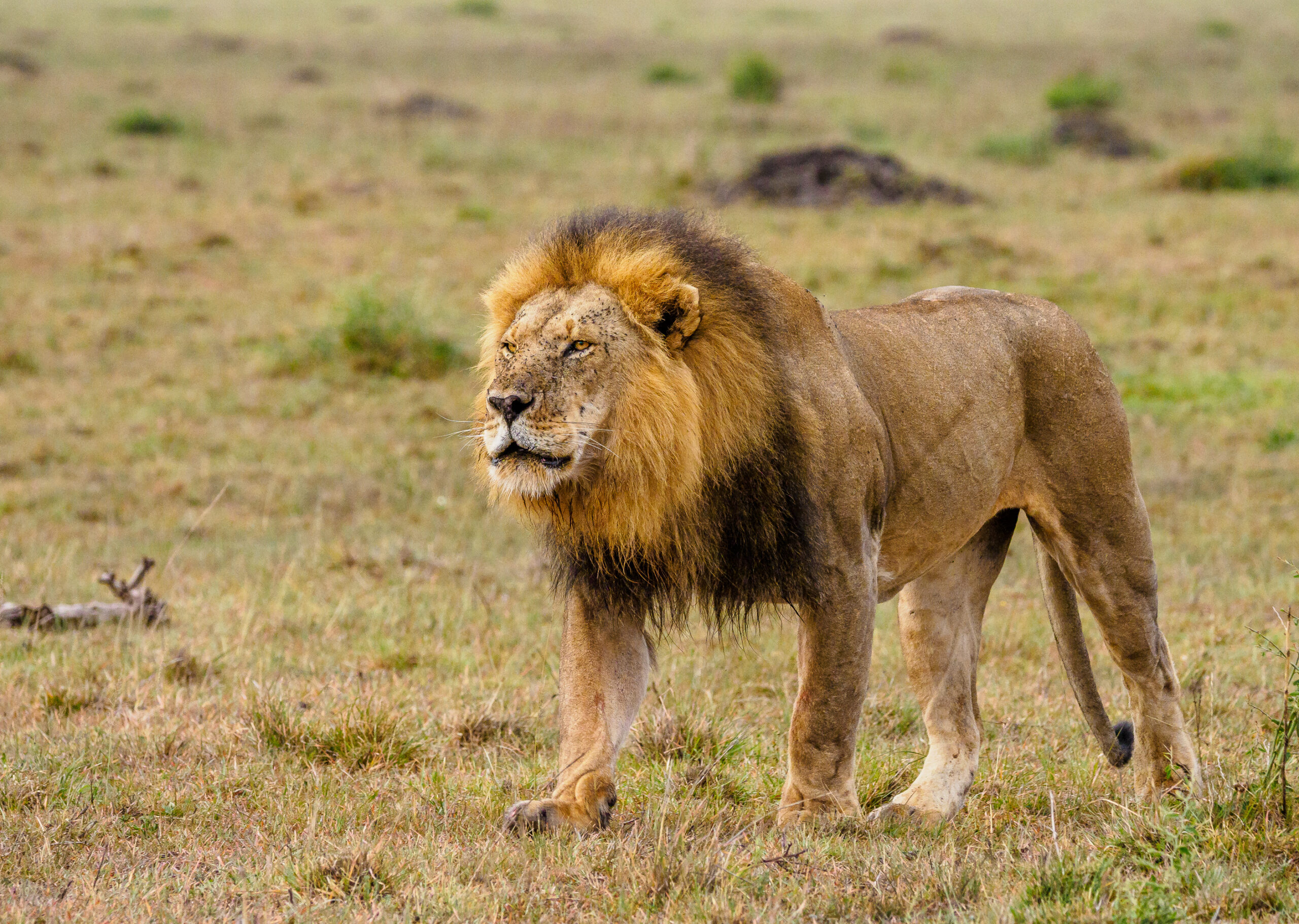
Lions – The Kings of the Savannah
The African lion, often referred to as the “King of the Jungle”, is one of the most sought-after sightings on any Kenya safari. Kenya’s Masai Mara National Reserve is renowned for having one of the highest densities of lions in Africa. Here, entire prides can be seen lounging in the sun, stalking prey, or interacting socially.
Lions play a vital role in maintaining the ecosystem’s balance. Watching them hunt — especially during the Great Migration — is one of the most thrilling experiences you can have in the wild.
Where to See Lions:
Masai Mara
Tsavo East
Samburu (for desert-adapted lions)
Laikipia Conservancies
Best Time: Year-round, with more activity during dry months (June–October).
Elephants – Gentle Giants of Amboseli
Discover the Heart of African Wildlife
Kenya is one of the best places in Africa to see African elephants, especially in Amboseli National Park, where large herds roam freely across open plains beneath the snow-capped backdrop of Mount Kilimanjaro. Amboseli’s elephants are some of the most well-studied in Africa, with many individuals known by name.
Elephants are highly intelligent, social animals. Watching a matriarch lead her family to a swamp or seeing calves playfully splash in water is a truly moving safari moment.
Where to See Elephants:
Amboseli (for iconic Kilimanjaro views)
Tsavo East and West (massive red-dust herds)
Samburu (smaller desert elephants)
Best Time: June–October; December–February for better visibility.
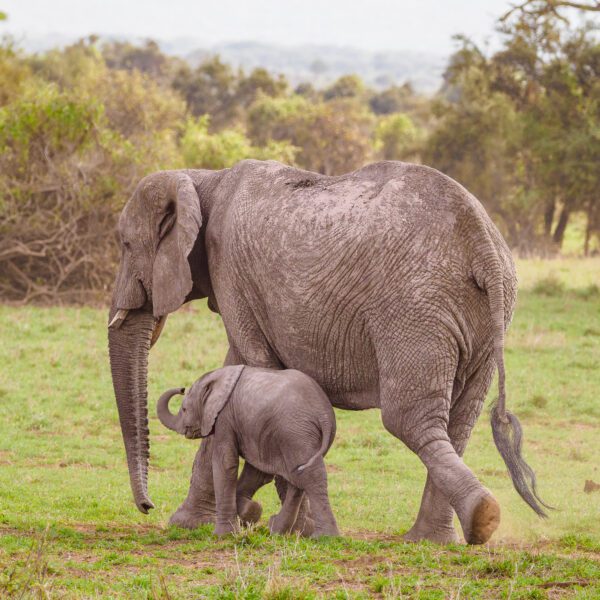
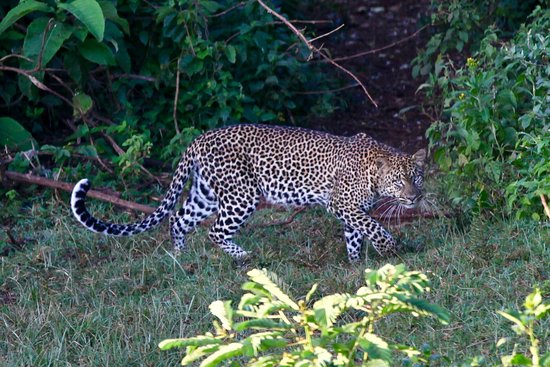
Leopards – Elusive & Elegant Predators
The African leopard is elusive, solitary, and incredibly beautiful. They are masters of camouflage, often hiding in trees or tall grasses during the day. Leopards are nocturnal hunters and can carry prey heavier than themselves up into the branches to avoid scavengers.
Leopards are best spotted in Masai Mara, along riverine forests, or in Laikipia, where they are protected within private conservancies.
Where to See Leopards:
Masai Mara (especially in the Talek River area)
Laikipia Plateau
Lake Nakuru (often seen in acacia trees)
Best Time: Dawn and dusk, year-round.
African Buffalo – Tough, Territorial, and Unpredictable
Discover the Heart of African Wildlife
The Cape buffalo, part of the Big Five, is considered one of Africa’s most dangerous animals due to its unpredictable nature. They move in large herds and are often seen near water sources. While herbivores, their aggressive defense tactics make them a formidable presence.
Buffalo can often be spotted wallowing in mud, grazing peacefully — or locking horns with rivals during dominance displays.
Where to See Buffalo:
Nearly all national parks
Lake Nakuru, Masai Mara, Tsavo, Aberdare
Best Time: Year-round, especially during the dry season.

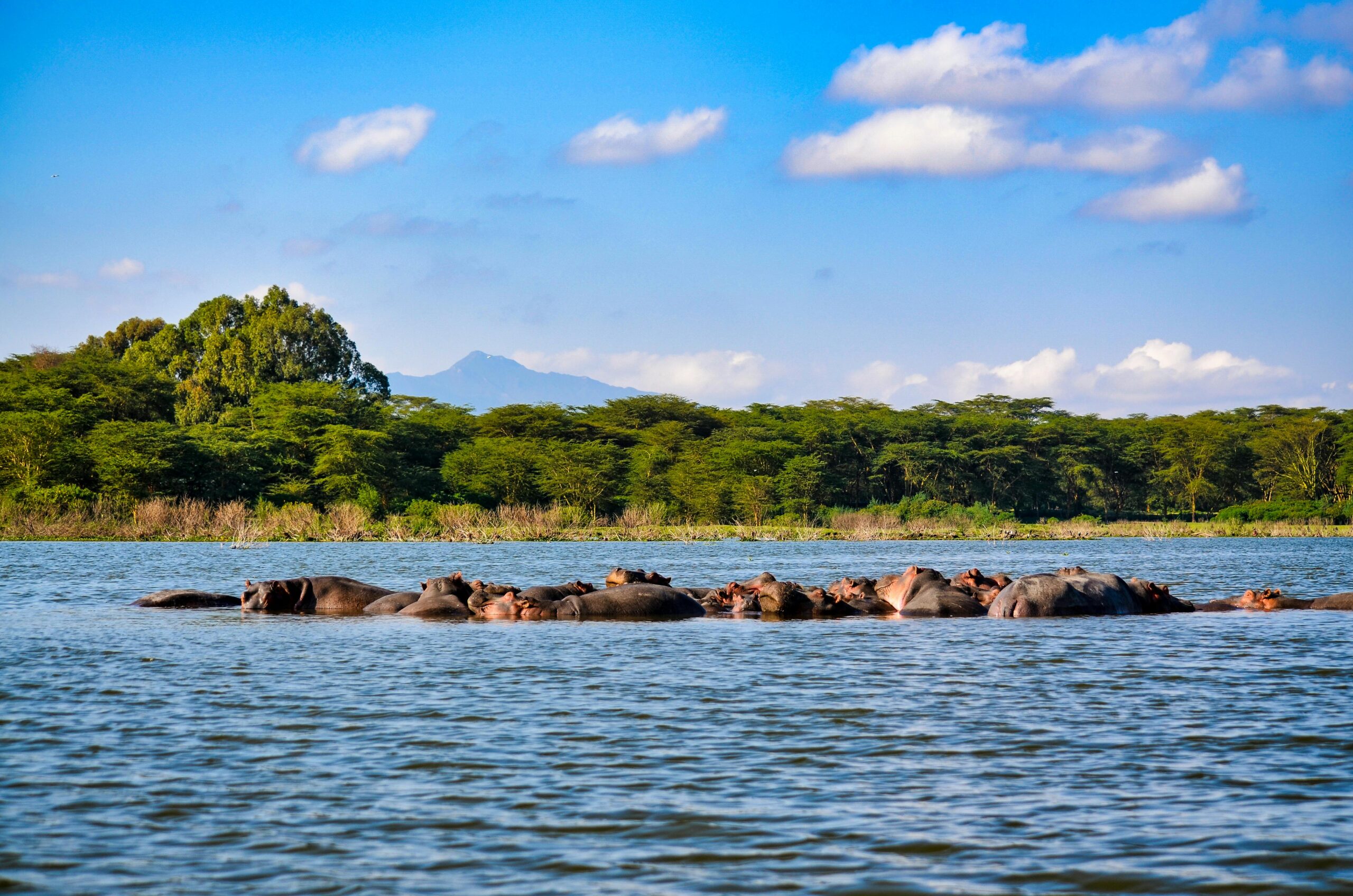
Rhinoceros – Rare and Powerful
Kenya is one of Africa’s leaders in rhino conservation, and it’s one of the few places where you can still see both black and white rhinos in the wild. White rhinos are social grazers, while black rhinos are browsers, solitary, and more aggressive. These incredible prehistoric-looking mammals are highly endangered due to poaching and habitat loss.
Conservancies like Ol Pejeta have successfully reintroduced rhinos and now offer visitors a rare chance to see them up close.
Where to See Rhinos:
Lake Nakuru National Park (both species)
Ol Pejeta Conservancy (largest black rhino population in East Africa)
Nairobi National Park (good for white rhinos)
Best Time: Year-round, especially in open grassland areas.
Zebras & Wildebeests – The Migrating Millions
Discover the Heart of African Wildlife
No Kenya wildlife experience is complete without witnessing the endless herds of wildebeest and zebras, especially during the Great Migration in the Masai Mara (July–October). Wildebeests are noisy, nomadic grazers, while zebras offer a visual contrast with their dazzling stripes — which are unique to every individual.
These two species often travel together for protection and are essential to the savannah food chain.
Where to See Them:
Masai Mara (Migration season)
Tsavo
Laikipia
Amboseli
Best Time: July–October (Migration); January–March (calving season)
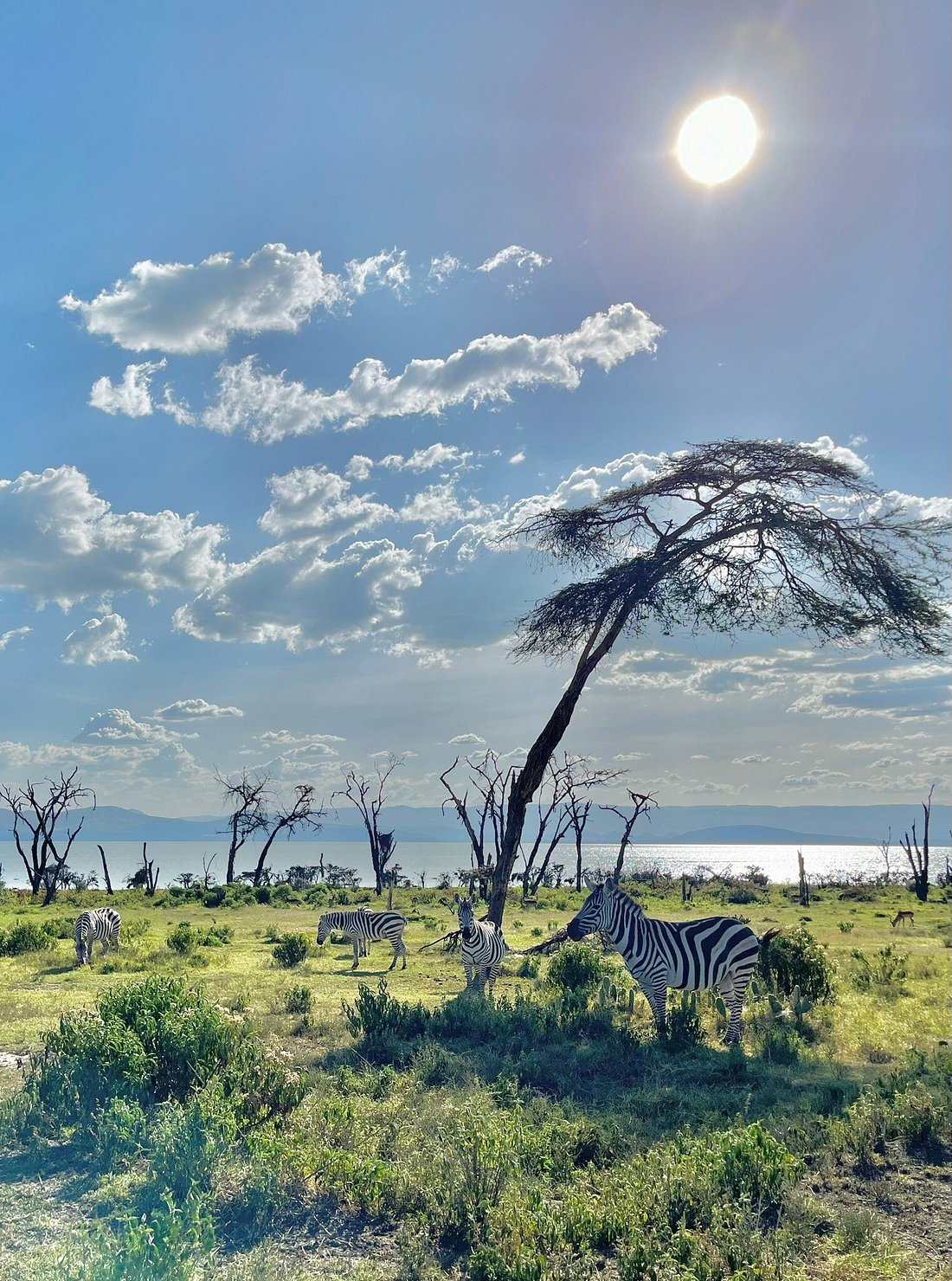
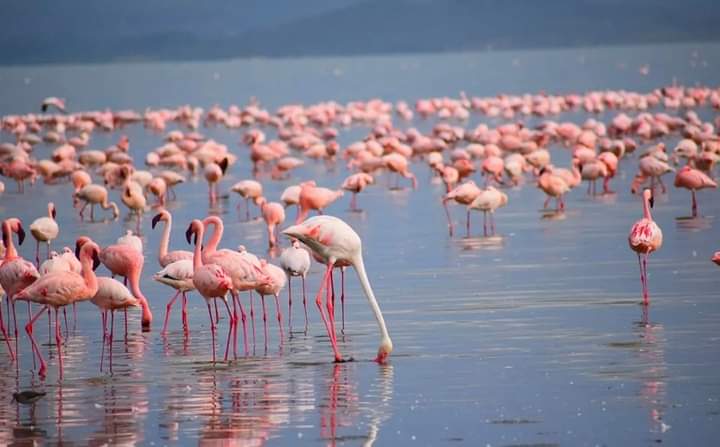
Flamingos – Kenya’s Pink Lakes
Kenya’s alkaline Rift Valley lakes, especially Lake Nakuru, Lake Bogoria, and Lake Elmenteita, attract millions of lesser flamingos each year, forming vivid pink carpets across the water. These elegant birds feed on algae and shrimp, and they are particularly mesmerizing in large numbers.
Some seasons bring fewer flamingos depending on lake water levels and food availability, but sightings remain common year-round.
Where to See Flamingos:
Lake Bogoria (massive flocks)
Lake Elmenteita
Best Time: November–April (wet season; peak numbers)
Cheetahs – Speed & Elegance in Motion
Discover the Heart of African Wildlife
Cheetahs are the world’s fastest land mammals, capable of sprinting up to 100 km/h (62 mph). Kenya’s wide open plains, particularly in the Masai Mara, offer perfect terrain for cheetahs to hunt using short bursts of speed. Unlike leopards, cheetahs hunt by day and are often spotted during morning or late afternoon drives.
Where to See Cheetahs:
Masai Mara (best sightings in the Mara Triangle)
Tsavo East
Best Time: Early mornings or late afternoons during dry season.
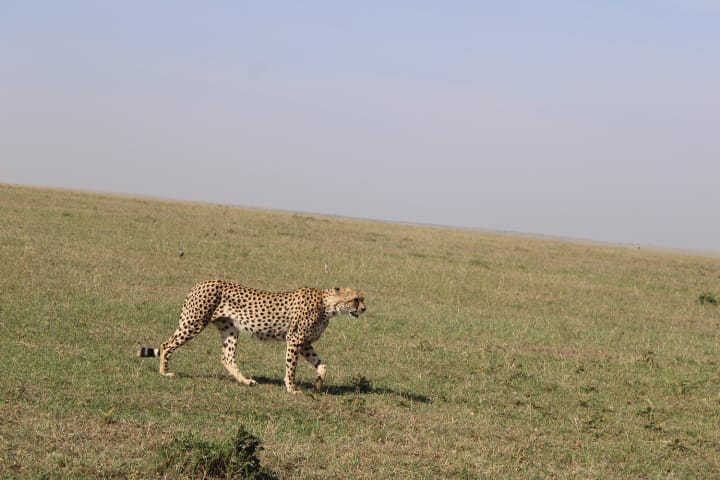
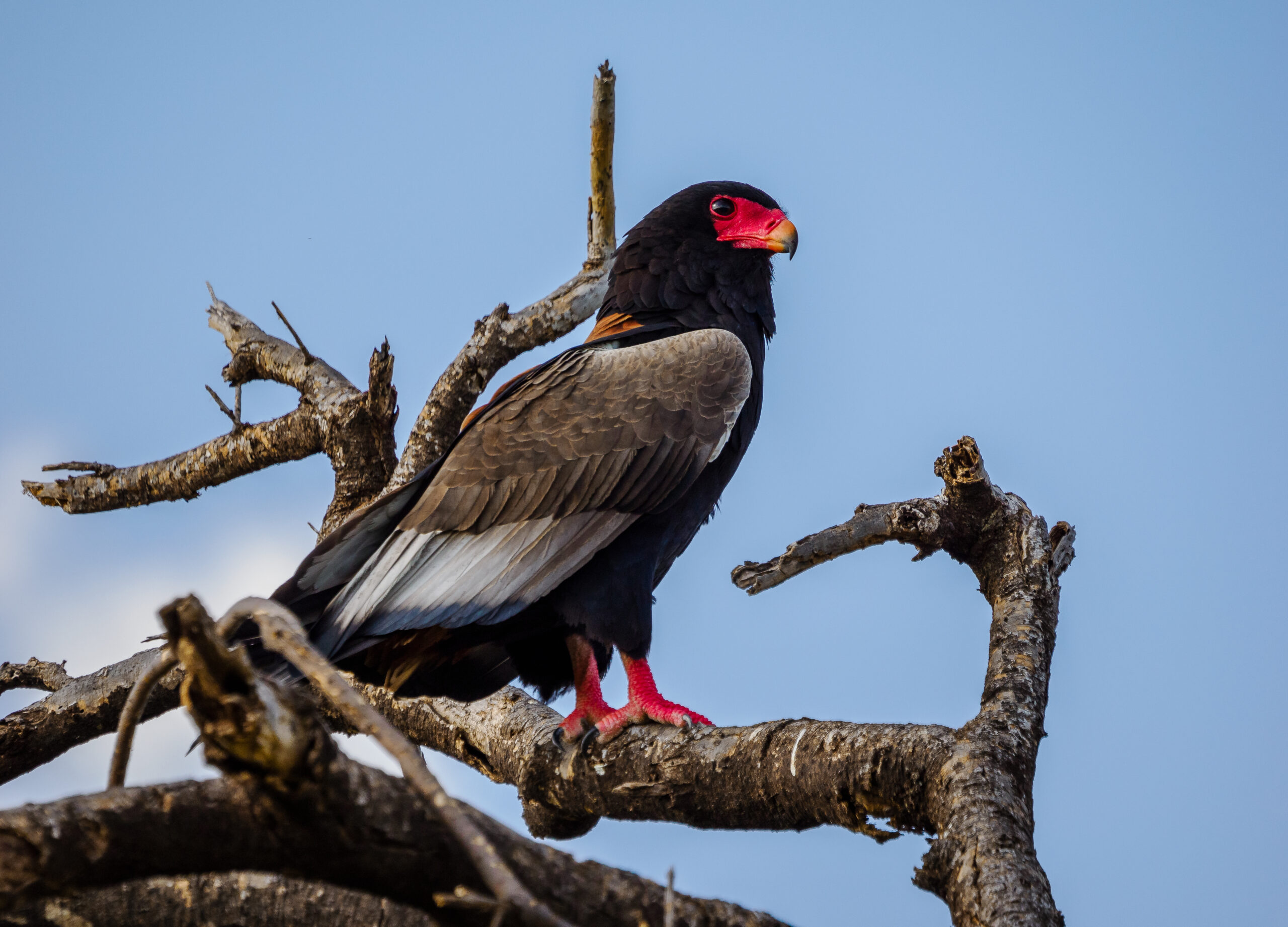
Birds of Kenya – A Paradise for Birdwatchers
Kenya is a birder’s dream, with over 1,100 species recorded — from ostriches and eagles to bee-eaters and turacos. Birdlife varies across ecosystems: savannahs, wetlands, forests, and highlands all support unique species. Specialized birding safaris are available, or birds can be enjoyed alongside traditional game drives.
Top Birding Hotspots:
Lake Baringo
Amboseli
Kakamega Forest
Lake Naivasha
Best Time: November–April (when migratory birds are present)
Best time to visit Kenya, Tanzania & Top safari tour Destinations
Plan Your Kenya Wildlife Adventure
Whether you’re dreaming of a photography trip, a birding expedition, or a classic Kenya wildlife safari, our experts will help you build the perfect itinerary.
💬 Chat on WhatsApp | 📧 Send Inquiry | 📞 Call: +254-112458884
Custom safaris for solo travelers, couples, families, and groups
Private vehicles, expert guides, flexible scheduling
Add Zanzibar or Diani beach extension on request
FAQs – Kenya Wildlife
Absolutely. Kenya is home to all of the Big Five, along with rare species like Grevy’s zebra, over 1,000 birds, and vibrant ecosystems across 50+ parks and reserves.
For big cats: Masai Mara
For elephants: Amboseli
For rhinos: Ol Pejeta or Lake Nakuru
For rare species: Samburu
Yes. Kenya wildlife tours range from mid-range group tours to luxury private safaris. Custom pricing available based on duration and lodge category.
Yes — the Great Migration safari occurs in the Masai Mara between July and October, when over 1.5 million wildebeest cross from the Serengeti.

